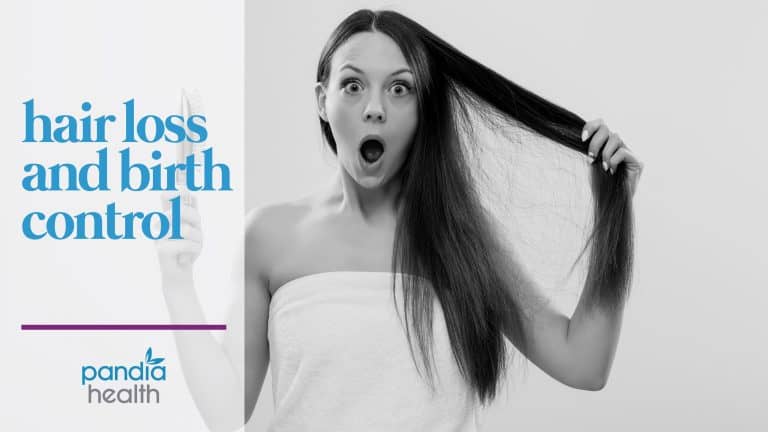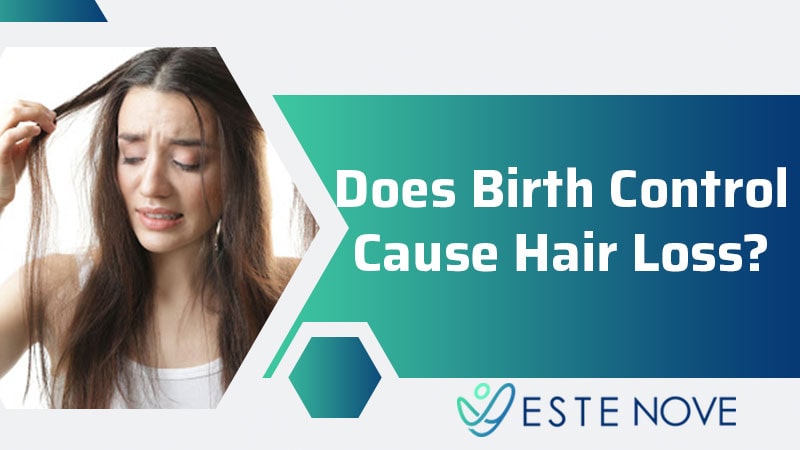Table Of Content

As with any side effects of medications, hair thinning or shedding is only a potential result of taking a contraceptive. However, it is possible for hormonal birth control to cause hair loss, says Sophia Yen, M.D., M.P.H., the co-founder and CEO of Pandia Health, a birth control delivery company. Most pills contain man-made forms of the female hormones estrogen and progesterone.
Medical Professionals

This synthetic hormone has androgenic properties, which means it can cause similar effects as male hormones (keep in mind, the natural hormone progesterone does not have androgenic effects). Due to this property, the pill can lead to various adverse effects, including nausea, headaches, and hair loss. Rapid hair shedding, which is caused by telogen effluvium, and progressive thinning, which is commonly linked to androgenic hair loss. So, if you have high androgen levels, using progestin-only (mini pills) pills is not advisable since they can trigger hair loss. Switching to combination pills instead might better the hair loss side effects as well as hormonal fluctuations.
Hair loss after stopping birth control
If you are concerned about hair loss, you can speak with your healthcare provider about non-hormonal forms of birth control, or taking a pill that has low androgenic activity. You're less likely to lose hair when starting hormonal birth control than coming off of it. Nevertheless, when this happens, it's likely because your prescription contains a progestin that has androgens, says Dr. Green. The increase in androgen receptors in these pills can contribute to hair loss.
How do trees and green spaces enhance our health?
A Woman Went Viral for Documenting Her Hair Loss After Stopping Birth Control, But Can That Really Happen? - Shape Magazine
A Woman Went Viral for Documenting Her Hair Loss After Stopping Birth Control, But Can That Really Happen?.
Posted: Wed, 15 Jun 2022 07:00:00 GMT [source]
All of these are progesterone-only methods of contraception which, similarly to oral contraception, might explain why they contribute to hair shedding. Not all birth control methods use the same types and same levels of hormones. If you’re experiencing hair thinning from birth control, it can feel like your hair texture is also changing. For instance, styling hair can be a challenge, as well as experiencing things like frizzing, tangling, or even the way it reacts to different weather conditions. Your doctor can evaluate your situation and give you an alternative pill.
Stop guessing which hair loss treatments actually work
Minipills may not prevent pregnancy as effectively as combination pills. Hormonal birth control contains the sex hormones estrogen and progestin, which encourage changes in your body to prevent pregnancy. These hormones thicken cervical mucus and stop the ovaries from releasing eggs, making hormonal birth control 99% effective in preventing pregnancy when used correctly. It is especially important to pay close attention to how our bodies react to hormones if we have a medical history of female pattern baldness or other forms of alopecia in women. Rob English is a researcher, medical editor, and the founder of perfecthairhealth.com. He acts as a peer reviewer for scholarly journals and has published five peer-reviewed papers on androgenic alopecia.
Conditions
A person can switch to a nonhormonal form of birth control, or use prescription and nonprescription treatments for hair loss. Women who have a family history of hormone-related hair loss may lose hair while on the pill or just after they discontinue it. Other women lose large clumps of hair or experience a lot of thinning.
Normally, a rise in estrogen causes a mature egg to leave the ovaries during a woman’s menstrual cycle. Traction alopecia is the result of environmental factors, such as wearing your hair in tight hairstyles, Agbai says. Telogen effluvium refers to the excessive shedding of hair follicles, and it occurs when hair follicles prematurely skip to the end of the hair growth cycle, she adds. Unfortunately, and maybe not surprisingly, this women’s health issue needs more research. The psychological and emotional impacts of hair loss on a woman can be devastating, and the link between hormonal contraception and the hair growth cycle should be explored further. Women may experience telogen effluvium and androgenetic hair loss when using hormonal birth control.
What is baldness?
It's widely available over-the-counter (OTC) in stores and online under the brand name Rogaine and can be applied as a foam. "Ginseng root is an ingredient to look for in hair products," Dr. King says. "Ginseng stimulates scalp microcirculation and helps to inhibit the production of DHT, the main hormone responsible for androgenetic hair loss." "Stress can trigger the end of anagen—or growth—phase, so developing stress management techniques can help stimulate hair growth," says Dr. King.
A Woman Went Viral for Documenting Her Hair Loss After Stopping Birth Control, But Can That Really Happen?
But hair loss is not usually a sign of anything serious, although it can be an indicator of an underlying issue. Causes can be wide-ranging, from hormonal imbalances, vitamin deficiencies, illness, medications or stress. Pinpointing the cause is crucial to receiving the right treatment, which is why a diagnosis from your GP is so important. It is a general term used to cover all types of hair loss; from diffuse thinning, where there is a general loss of hair across the whole scalp, to localised hair loss, a condition only affecting specific patches. Finally, the newest progestins, such as chlormadinone acetate (not available in the United States) and drospirenone, have mild antiandrogenic activity.
Does this mean, then, that the oestrogen in our contraceptives could have beneficial effects on our hair? Some women do find their hair appears thicker whilst using combined contraception. Women may also therefore experience some ‘hair loss’ after stopping this birth control method as their hair returns to normal. "Hair loss that occurs after stopping birth control is usually known as telogen effluvium, which typically occurs after the body experiences high stress," she says. "The stress pushes follicles into a resting phase and can lead to the hair temporarily falling out."
For example, some people find it difficult to remember to take a pill every day so an implant or IUD would be a better choice. There are also nonhormonal birth control choices, which may have different side effects. Birth control pills are more likely to cause hair loss in females who are hypersensitive to hormonal changes or have a predisposition to hormonal-related hair loss.
Stopping birth control may not reverse this process, and targeted treatments may be needed to manage it. When you introduce birth control into the mix, it can sometimes throw this cycle out of whack. Some women might experience hair thinning or loss due to a condition called telogen effluvium, where more hairs than normal enter the resting phase, and then fall out all at once. It’s like a mass exodus of your hair, and it can be quite alarming. By mid-pregnancy, many women actually see increased hair density.
No comments:
Post a Comment